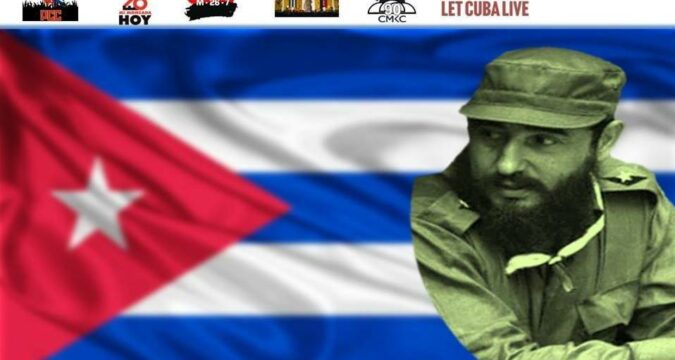
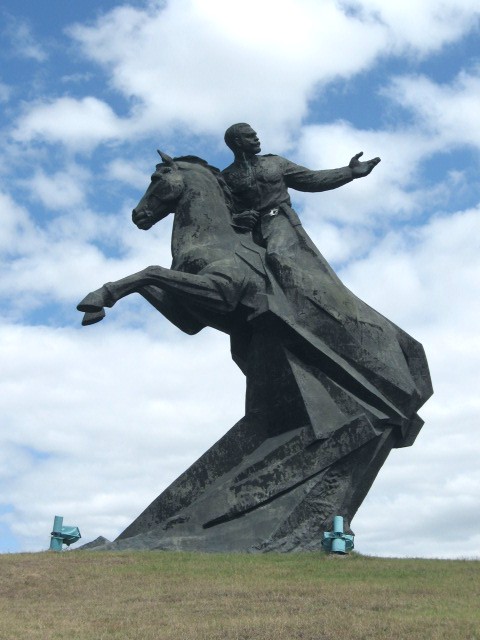
By: Abel Prieto
Revolution- We celebrate this year’s National Culture Day in the midst of exceptional circumstances. The restrictions imposed by the pandemic forced creators and organizations to move events, presentations and debates to the virtual realm. Television supported this great effort, and it can be said that the predictable cultural «blackout» did not occur. Nevertheless, the public accustomed to frequenting artistic venues suffered a drastic change in their cultural habits and a reduction in their options for spiritual enrichment.
In addition to the pandemic and its aftermath of all kinds, the effects of the tightening of the blockade became more suffocating than ever. We faced limitations that hindered the participation of the population in cultural processes and the social projection of writers, artists, art instructors and promoters, and their organizations and institutions, from the Association of Cuban Artists and Writers (UNEAC in Spanish), the Saiz Brothers Association (AHS in Spanish), the José Martí Brigade and the Institutes and Councils of the Ministry of Culture to the network of libraries, museums, community houses and other provincial and municipal entities.
If we take a look at our region, we will notice that the impact of the Covid-19 epidemic on the artistic movement has been devastating. A message circulated in July 2020 by the magazine Conjunto de la Casa de las Americas denounced the desperate situation of Latin American theater:
«While groups and artists generate virtual initiatives to sustain creative activity and communication with the public and with their colleagues everywhere (…) as a vital impulse to prevent theater from dying, many neoliberal governments, lacking humanistic cultural policies and indifferent to the need for preservation and affirmation of the identity of their peoples, turn their backs on culture and its artists.»
However, unlike what has happened where neoliberalism reigns, culture among us has not been orphaned. In the demonized Cuba by the machinery of lies of the media and social networks, the country’s leadership has continued to support creators and organizations. It protected particularly unsubsidized musicians and performing artists, whose income came from their performances in public spaces. As Díaz-Canel said, «With the body wounded by ailments and shortages, Cuba did not forget its artists.»
Meanwhile, in a classic opportunistic maneuver, the U.S. government and the fascist nucleus in Miami decided to take advantage of the occasion to revive, with particular viciousness, their old aspiration to divide the Cuban intellectual sectors, grow the creators further apart from the revolution and proclaim the debut of their long-dreamed-of fifth column of «dissidents».
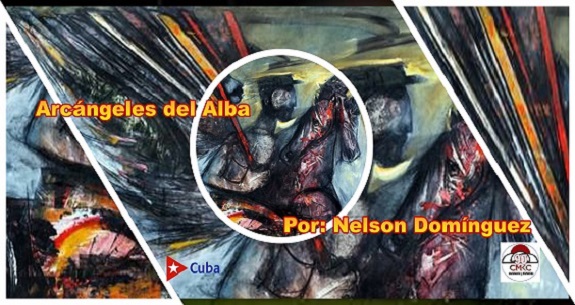
2
We are celebrating in 2021 the National Culture Day after commemorating the 60th anniversary of «Words to the Intellectuals» and the founding of UNEAC, and the 35th anniversary of the AHS.
These commemorations were not empty rituals. They served to motivate a rigorous and critical analysis of the leading role that writers and artists should assume in the design and conduct of cultural programs.
In his June 28 speech on «Words to Intellectuals», Díaz-Canel returned to vital points that Fidel had touched upon six decades ago. He stressed that the only viable path in terms of cultural policy is dialogue. Not the false «dialogue», as a show, that the noisy annexationists claim for the networks and the media at their service; but the «real» one, the «real and honest» one.
The very climate created by Fidel for those meetings in June 1961, thanks to his humility and his ability to listen, means for Díaz-Canel, an example of the model of communication that should be established between the political vanguard and the intellectual vanguard:
«That part of his speech is a lesson of ethics and cultural soundness, of respect for the other; it is a proof of how true dialogue works, with the ear attentive to the non-conformist or dissonant voices and the word ready to respond, but not to overcome, but to learn, accept, convince: without arrogance and without sterile haughtiness. He does not impose, he reasons.»
Díaz-Canel, in turn, revealed his daily experiences in such exchanges as a systematic and fruitful exercise «in the effort to build consensus and articulate actions». He insisted that he would continue to share many ideas with the intelligentsia «in the living dialogue, which has not ceased and will not cease».
He mentioned at the same time the decisions taken by the country’s leadership to preserve culture, in the midst of the enormous difficulties and shortages of the present:
«We did not wait for the artists’ demand [he said]. We thought of everyone and their fundamental needs in a context plagued by uncertainties and bad global economic news that keep the meager income of a poor and blocked nation in suspense. (…) // That has no other name than continuity. That 1961 dialogue is alive, even though sometimes we have neglected, postponed, misunderstood and maybe even mistreated it».
He also dispelled any fears that the dogmatic and sectarian positions that once distorted our cultural policy might return.
We must learn from the past, he said, «so that negative experiences are not repeated and do not remain in our memory with a paralyzing effect; so that the positive ones are systematized; so that unfounded fears do not become credible; so that opportunists and mediocre people never have power over creation; so that mercenaries do not discredit our cultural range; so that criticism is made from the artistic and professional point of view and not from external appraisals, which are usually sterile and produce contrary reactions; so that the Revolution that was made for justice and freedom does not give rise to confusions that deny them».
He also underlined defining aspects regarding freedom of creation and the scope of the «within the Revolution» formulated by Fidel and revisited in contemporaneity:
«…the work of art has not only the right but the mission to be provocative, risky, challenging, questioning, also exalting and emancipating. To submit it to subjective and cowardly censorship is an act of lese culture. Freedom of expression in the Revolution continues to be limited by the right of the Revolution to exist».
«Within the Revolution,» he ratified, «there continues to be room for everything and everyone, except for those who seek to destroy the collective project.» Martí «excluded the annexationists from Cuba with all and for the good of all» and Fidel did the same in 1961 with «the incorrigible counterrevolutionaries». Likewise, «in the Cuba of 2021 there is no room for the usual annexationists nor for the mercenaries of the moment».
Díaz-Canel dismantled the enemy’s dirty game, their intentions, their ways of acting and lying, and advanced the plans they have hatched to destabilize us:
«We are not naive. It is all too clear that our adversaries are trying, by all means, to provoke a social outbreak and they have chosen to induce provocations at a particularly difficult moment for the country due to the accumulated damage caused by the criminal reinforcement of the blockade and the wear and tear generated by the long and intense period of pandemic, associated with the outbreaks and resurgences of COVID-19. (…) // Preserving, under the worst of attacks, independence and national sovereignty will continue to be the first priority for those who feel revolutionary and patriotic, even if those words are considered obsolete in certain circles. // Obsolete is dependence, obsolete is to suffer humiliation by the powerful. Of all freedoms, the most precious is the one that liberates all of us who share a sentiment, the one that inflames us with pride at the triumph of a compatriot, the flag that is raised and the anthem that is sung.»
It is not possible to talk about October 20 today without stopping at this profound and convincing text by Díaz-Canel.
Cuban President reaffirms continuity of the Revolution
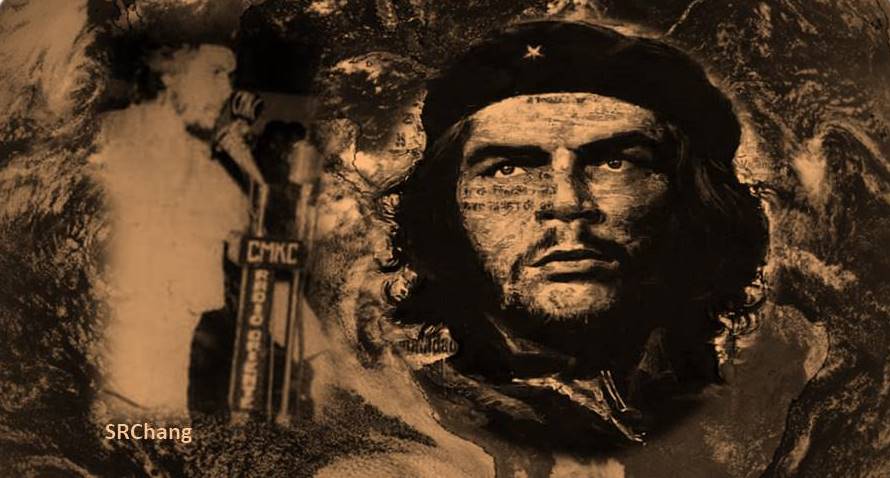
Che en CMKC, Radio Revolución, señal de Excelencia y Distinción. By: Santiago Romero Chang
3
For Fidel, culture was the key to the freedom of human beings, to their ability not to be deceived, and the best antidote to avoid the seductive traps of consumerism. It could be a primordial component of the quality of life, of the standard of living, in a conception of happiness very different from that promoted by capitalist advertising, tied to the irrational accumulation of material things -with the consequent plundering of natural resources and the accelerated deterioration of the environment.
But for Fidel culture represents something more. He called it more than once «shield and sword of the nation»: the shield, that core of identity that we treasure, protects us from disintegrating influences, as Cintio and Lezama would say; the sword, on the other hand, is capable of reaching very far and carries the truth of our country (and defends it) in the most remote places.
In 1993, in the bitterest days of the Special Period, Fidel said at UNEAC that phrase that has often been remembered: «Culture is the first thing to be saved.» He was referring to art and literature, yes, but equally to the cognitive and affective link between culture and nation and to the sum of knowledge essential for human beings to defend their freedom, their memory, their origins, and undo the vast web of manipulations that close their way day by day.
Some five years later, at the 6th Congress of the organization, Fidel spoke of cultural globalization. He said it was «the most important of all issues, the greatest threat to culture, not only ours, but the world’s», he said.
In the light of this severe warning, we thoroughly understand the importance of the phrase «the first thing to be saved» and the personal impulse that Fidel gave to the mass training of art instructors, to the introduction of artistic appreciation in the television program «University for all», to the creation of ballet workshops for children in poor neighborhoods, to the multiplication of publishing houses throughout the country and many other initiatives for the widest possible dissemination of culture.
Díaz-Canel is thinking of Fidel’s ideas when, in the aforementioned speech, he states that our enemy «has never managed to break through the impassable wall of solid culture and national identity». That is why he insists on inserting his own messages of pseudo-cultural junk, loaded with vulgarity, «in those spaces we left empty, confident that the massification of education and culture would spontaneously solve a historical accumulation of centuries-old inequalities that cannot be cured even in six decades of Revolution».
And he recognizes, with frankness and transparency, that «we are also responsible for our marginality indexes». Hence, we cannot abandon at any time «the fight opened by Fidel against ignorance» since 1961 and «continue betting on decency and the richness that artistic culture brings to human beings, without getting tired of it».
Within the Revolution there continues to be room for everything and everyone, except those who seek to destroy the collective project
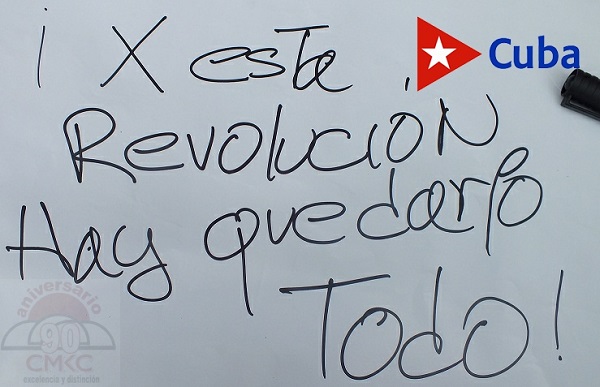
4
Since a few days ago, the accurate and influential «sword» that Fidel saw in the national culture is in Mexico, at the Cervantino International Festival, where Cuba is the guest of honor. Our Minister, the poet Alpidio Alonso, heads a large delegation. Interviewed by the newspaper La Jornada, he answered inevitable questions about the anti-Cuban campaigns that have wanted to implicate the cultural sector.
«There is no confrontation of any kind between the new generations and the island’s artists and their government,» Alpidio assures. And he adds: «the role of culture is central to the project of the revolution and Cuban socialism that was born more than 60 years ago».
«It is unprecedented [he adds]: the way in which technology has been used in a perverse way to falsify things and build a narrative that adulterates everything. (…) The best counter to the campaigns of hate and disinformation is the very work of Cuban artists, with all its complexity and diversity, since the art sponsored by the cultural institutions created by the revolution is critical, it is not squeamish or contemplative art…»
The best response is to communicate the Revolution
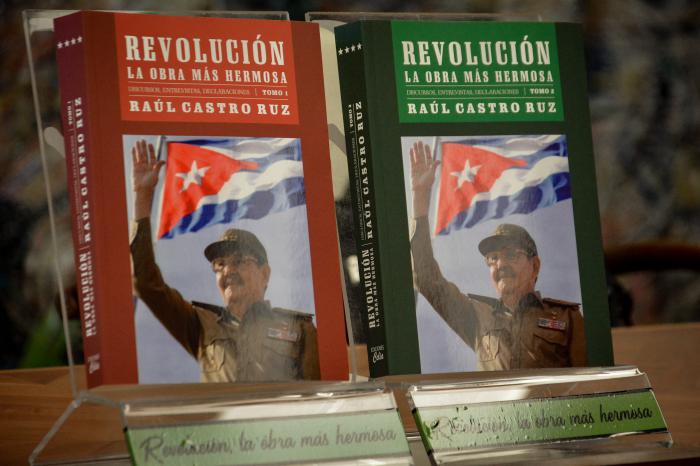
5
On August 22nd, 1980, the Council of Ministers approved October 20 to be officially observed as National Culture Day. The then Minister of Culture, Armando Hart, spoke with great pride about the significance of uniting on that date the powerful legacy of our country’s artistic and literary creation and the patriotic and revolutionary tradition that extends from 1868 to the triumph of January 1959.
The itinerary that takes us from Cespedes and Perucho Figueredo to the young people who today study in art schools leads us to Marti and Fidel and passes through Rubén, Lam, Alejo, Lezama, Virgilio, Guillén, Cintio, Fina, Alicia, Mariano, Fayad, Retamar, Haydee, Graziella, Barnet, Nancy, Alfredo, Eusebio, Torres Cuevas, Formell, Silvio, Choco and so many others. It has to do with Cuban identity, with its essence, with its unrepeatable profile, and it also has to do with the ideals of emancipation and social justice that have inspired our creators.
Cintio reminded us in the somber year of 1993 that the destiny of the Revolution cannot be separated from the destiny of the homeland:
«What is in danger, we know, is the nation itself. The nation is already inseparable from the Revolution that since October 10, 1868 has constituted it, and it has no alternative: either it is independent or it ceases to be at all.»
Nation and Revolution, Homeland and Revolution
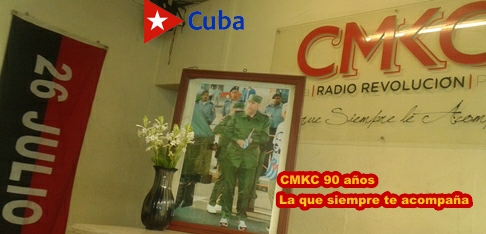
Nation and Revolution, homeland and Revolution, cannot be conceived separately. Neither is it possible to imagine the authentic Cuban culture, our culture, vigorous and genuine, selling out to the Empire, allying itself with annexation. If it is truly Cuban, if it is born of our roots, if it has been gestated by men and women (wherever they live) bearers of that Cubanness defined by Fernando Ortiz, it will be indissolubly linked to the binomial of nation and Revolution, of homeland and Revolution.























